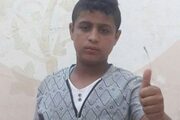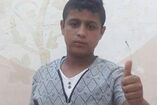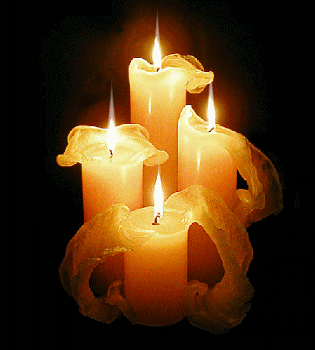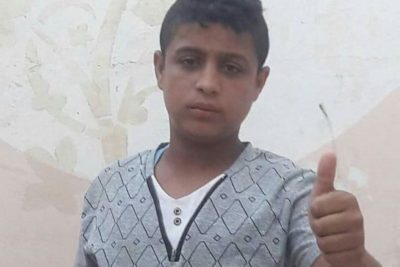2 nov 2019

Al-Mezan Center For Human Rights: In one of the dozens of cases pursued by Al Mezan Center for Human Rights for the killing of unarmed Palestinians in Gaza’s ‘Great March of Return’ protests, an Israeli military court has sentenced a soldier who killed on July 13 2018, 14-year-old child, Othman Hillis, to only 30 days in prison.
A suspended 60-day sentence and a demotion in rank were added by the court, which indicted the soldier on the charge of “disobeying an order leading to a threat to life or health”, per article 72 of Israeli Martial Law (1955).
Convicting—even charging—an Israeli soldier for conduct that led to death or harm of a Palestinian is rare; however, the case is very troubling in that it was centered on disciplinary charges, instead of properly based on criminal charges for unlawful killing.
The absence of a criminal conviction is a testament to the perpetual manner in which the Israeli justice system, including the military courts, shields State actors from genuine accountability and denies justice and redress to the victims, even in cases amounting to potential war crimes.
Al Mezan submitted a criminal complaint to the Israeli Military Advocate General on 4 September 2018, requesting a criminal investigation into the 13 July 2018 killing of Hillis; the Military Police initiated a criminal investigation two months later.
On 6 March 2019, with Al Mezan’s legal and technical support to the family, investigators interviewed Hillis’ father at Erez crossing. Al Mezan was then informed in writing on 29 October 2019 that, “the investigation is concluded […] and based on the findings, the Military Advocate General has convicted the soldier in question with exceeding his authority” (unofficial translation of the text by Al Mezan).
The evidence collected by Al Mezan shows Hillis’ shooting to be an act of willful killing, requiring a sentence commensurate with the gravity of the crime.
The sentence handed down by the court for failure to follow orders and show discipline is woefully derisory and demonstrates rampant impunity in Israel and a lack of effective means of redress for Palestinian victims and/or their families.
Al Mezan’s documentation shows that since 30 March 2018, Israeli forces have killed 214 Palestinians at the ‘Great March of Return’ protests in the Gaza Strip, including 46 children, four paramedics, two journalists, and nine persons with disability. Over 18,000 more have been injured.
The use of lethal and other excessive force against unarmed protesters and media and medical personnel at the demonstrations, resulting in the fatalities and injuries, constitutes a grave violation of the right to life enshrined in International Human Rights Law and demonstrates a complete disregard for the UN Basic Principles on the Use of Force and Firearms by Law Enforcement Officials.
After investigations, the 2018 United Nations Independent International Commission of Inquiry on the Protests in the Occupied Palestinian Territory, detailed a “lack of confidence” in the Israeli justice system, whereby the Military Advocate General “has yet to accept the implications of accountability”.[1]
The Commission continued that the “principles of promptness, independence and impartiality, and effectiveness appear to be compromised”.[2]
Al Mezan’s similar findings of persistent failure by the Israeli justice system to hold perpetrators to account in accordance with international law necessitate the intervention of international justice mechanisms, including the International Criminal Court. The protection of civilians and the rule of law are gravely undermined through the perpetuation of a state of impunity.
Al Mezan calls on the international community to fulfill its responsibilities and legal obligations to end serious violations of the rules and norms of international law, and to ensure that civilians living under occupation are granted due protection.
The Office of the Prosecutor at the International Criminal Court must investigate the alleged grave and systematic crimes committed in the occupied Palestinian territory to provide justice and an effective deterrent to the possible future commission of crimes.
* This statement was issued by the Al-Mezan Center For Human Rights
————–
[1] UN Commission of Inquiry report into the Gaza 2018 protests in the Occupied Palestinian Territory (2019) Report of detailed findings (UN Doc. A/HRC/40/CRP.2)
https://www.ohchr.org/EN/HRBodies/HRC/RegularSessions/Session40/Documents/A_HRC_40_74_CRP2.pdf para. 726
[2] Ibid footnote 1
A suspended 60-day sentence and a demotion in rank were added by the court, which indicted the soldier on the charge of “disobeying an order leading to a threat to life or health”, per article 72 of Israeli Martial Law (1955).
Convicting—even charging—an Israeli soldier for conduct that led to death or harm of a Palestinian is rare; however, the case is very troubling in that it was centered on disciplinary charges, instead of properly based on criminal charges for unlawful killing.
The absence of a criminal conviction is a testament to the perpetual manner in which the Israeli justice system, including the military courts, shields State actors from genuine accountability and denies justice and redress to the victims, even in cases amounting to potential war crimes.
Al Mezan submitted a criminal complaint to the Israeli Military Advocate General on 4 September 2018, requesting a criminal investigation into the 13 July 2018 killing of Hillis; the Military Police initiated a criminal investigation two months later.
On 6 March 2019, with Al Mezan’s legal and technical support to the family, investigators interviewed Hillis’ father at Erez crossing. Al Mezan was then informed in writing on 29 October 2019 that, “the investigation is concluded […] and based on the findings, the Military Advocate General has convicted the soldier in question with exceeding his authority” (unofficial translation of the text by Al Mezan).
The evidence collected by Al Mezan shows Hillis’ shooting to be an act of willful killing, requiring a sentence commensurate with the gravity of the crime.
The sentence handed down by the court for failure to follow orders and show discipline is woefully derisory and demonstrates rampant impunity in Israel and a lack of effective means of redress for Palestinian victims and/or their families.
Al Mezan’s documentation shows that since 30 March 2018, Israeli forces have killed 214 Palestinians at the ‘Great March of Return’ protests in the Gaza Strip, including 46 children, four paramedics, two journalists, and nine persons with disability. Over 18,000 more have been injured.
The use of lethal and other excessive force against unarmed protesters and media and medical personnel at the demonstrations, resulting in the fatalities and injuries, constitutes a grave violation of the right to life enshrined in International Human Rights Law and demonstrates a complete disregard for the UN Basic Principles on the Use of Force and Firearms by Law Enforcement Officials.
After investigations, the 2018 United Nations Independent International Commission of Inquiry on the Protests in the Occupied Palestinian Territory, detailed a “lack of confidence” in the Israeli justice system, whereby the Military Advocate General “has yet to accept the implications of accountability”.[1]
The Commission continued that the “principles of promptness, independence and impartiality, and effectiveness appear to be compromised”.[2]
Al Mezan’s similar findings of persistent failure by the Israeli justice system to hold perpetrators to account in accordance with international law necessitate the intervention of international justice mechanisms, including the International Criminal Court. The protection of civilians and the rule of law are gravely undermined through the perpetuation of a state of impunity.
Al Mezan calls on the international community to fulfill its responsibilities and legal obligations to end serious violations of the rules and norms of international law, and to ensure that civilians living under occupation are granted due protection.
The Office of the Prosecutor at the International Criminal Court must investigate the alleged grave and systematic crimes committed in the occupied Palestinian territory to provide justice and an effective deterrent to the possible future commission of crimes.
* This statement was issued by the Al-Mezan Center For Human Rights
————–
[1] UN Commission of Inquiry report into the Gaza 2018 protests in the Occupied Palestinian Territory (2019) Report of detailed findings (UN Doc. A/HRC/40/CRP.2)
https://www.ohchr.org/EN/HRBodies/HRC/RegularSessions/Session40/Documents/A_HRC_40_74_CRP2.pdf para. 726
[2] Ibid footnote 1
31 oct 2019

An Israeli soldier was sentenced on Monday to a month of community service for killing a Palestinian child during a Great Return March protest in the occupied Gaza Strip.
The Middle East Monitor reported that the soldier – whose name has been banned from publication – was convicted by a military court in relation to the death of 14-year-old Othman Hilles, who was shot during a demonstration on 13 July 2018.
It is the first conviction in connection to the huge number of casualties among Great Return March demonstrators, with Israeli forces shooting more than 7,000 with live fire since March 2018.
Despite Hilles being shot while unarmed and posing no threat to Israeli soldiers, the soldier was only convicted of “disobeying an order leading to a threat to life or health”, as opposed to manslaughter. The military court sentenced the soldier to one month community service, as well as a demotion.
The shooting of Hilles was captured on film, likely a factor in the soldier being brought to trial at all. This is the first conviction of an Israeli soldier for killing a Palestinian unarmed demonstrator in Gaza – although there have been more than 200 Palestinian civilians killed in the past two years of demonstrations.
According to the Times of Israel, the soldier – a sniper from the Givati Brigade – was not convicted of a more serious offense like manslaughter “as military prosecutors were unable to collect sufficient evidence connecting his gunshot to [the boy’s death]”.
The Israeli military spokesperson confirmed the conviction in a statement, saying that the soldier “fired at a Palestinian rioter who climbed the border fence…without obtaining permission from his commanders while not following the rules of engagement or the instructions given to him earlier”.
Euro-Med: Light Sentencing of Israeli Soldier is a ‘Green Light to More Violations’
The Israeli sharpshooter who killed an unarmed Palestinian teen in Gaza, was sentenced to 1 (one) month of community service, was described by Euro-Mediterranean Human Rights Monitor (Euro-Med) as ‘a green light to more violations’.
Othman Rami Helles, 15, was shot in the torso, on the 13th of July 2018, during weekly Palestinian protests along the eastern Gaza-Israel perimeter fence.
This is the first time an Israeli soldier has been convicted by Israel of killing an unarmed Palestinian in the Great Return March protests. Hundreds of unarmed Palestinians, including journalists, paramedics, women and children, have been killed, maimed, or permanently disabled with direct orders from commanding officers.
The convicted soldier admitted to shooting the teenager without permission from his commanders, in violation of Israel’s own rules of engagement.
“Deviating from orders was likely the main reason for his indictment rather than the act of killing a non-violent protester,” said Euro-Med.
“While holding Israeli soldiers accountable for crimes perpetrated against Palestinians is a step in the right direction, the Euro-Mediterranean Human Rights Monitor finds the sentencing to be entirely disproportionate with the criminal act of killing an unarmed child protester, and may encourage other IDF soldiers to follow the lead of the incriminated sniper, knowing that the consequences are negligible and lenient,” Euro-Med said in its statement.
“A month of community service for the death of a person is not deterrent enough to stop the killings,” calling for greater sanctions on Israeli soldiers who unlawfully kill Palestinians.
“Israeli security forces operate with near impunity, facing few repercussions for abusive and illegal actions, such as beatings and killings. The Euro-Med Monitor is concerned that the court’s decision will encourage further killings and questions the impartiality of the Israeli judiciary,” it said.
“Euro-Med Monitor calls on the Israeli judiciary to exercise greater scrutiny of such cases and strive to uphold the rule of law.”
The Middle East Monitor reported that the soldier – whose name has been banned from publication – was convicted by a military court in relation to the death of 14-year-old Othman Hilles, who was shot during a demonstration on 13 July 2018.
It is the first conviction in connection to the huge number of casualties among Great Return March demonstrators, with Israeli forces shooting more than 7,000 with live fire since March 2018.
Despite Hilles being shot while unarmed and posing no threat to Israeli soldiers, the soldier was only convicted of “disobeying an order leading to a threat to life or health”, as opposed to manslaughter. The military court sentenced the soldier to one month community service, as well as a demotion.
The shooting of Hilles was captured on film, likely a factor in the soldier being brought to trial at all. This is the first conviction of an Israeli soldier for killing a Palestinian unarmed demonstrator in Gaza – although there have been more than 200 Palestinian civilians killed in the past two years of demonstrations.
According to the Times of Israel, the soldier – a sniper from the Givati Brigade – was not convicted of a more serious offense like manslaughter “as military prosecutors were unable to collect sufficient evidence connecting his gunshot to [the boy’s death]”.
The Israeli military spokesperson confirmed the conviction in a statement, saying that the soldier “fired at a Palestinian rioter who climbed the border fence…without obtaining permission from his commanders while not following the rules of engagement or the instructions given to him earlier”.
Euro-Med: Light Sentencing of Israeli Soldier is a ‘Green Light to More Violations’
The Israeli sharpshooter who killed an unarmed Palestinian teen in Gaza, was sentenced to 1 (one) month of community service, was described by Euro-Mediterranean Human Rights Monitor (Euro-Med) as ‘a green light to more violations’.
Othman Rami Helles, 15, was shot in the torso, on the 13th of July 2018, during weekly Palestinian protests along the eastern Gaza-Israel perimeter fence.
This is the first time an Israeli soldier has been convicted by Israel of killing an unarmed Palestinian in the Great Return March protests. Hundreds of unarmed Palestinians, including journalists, paramedics, women and children, have been killed, maimed, or permanently disabled with direct orders from commanding officers.
The convicted soldier admitted to shooting the teenager without permission from his commanders, in violation of Israel’s own rules of engagement.
“Deviating from orders was likely the main reason for his indictment rather than the act of killing a non-violent protester,” said Euro-Med.
“While holding Israeli soldiers accountable for crimes perpetrated against Palestinians is a step in the right direction, the Euro-Mediterranean Human Rights Monitor finds the sentencing to be entirely disproportionate with the criminal act of killing an unarmed child protester, and may encourage other IDF soldiers to follow the lead of the incriminated sniper, knowing that the consequences are negligible and lenient,” Euro-Med said in its statement.
“A month of community service for the death of a person is not deterrent enough to stop the killings,” calling for greater sanctions on Israeli soldiers who unlawfully kill Palestinians.
“Israeli security forces operate with near impunity, facing few repercussions for abusive and illegal actions, such as beatings and killings. The Euro-Med Monitor is concerned that the court’s decision will encourage further killings and questions the impartiality of the Israeli judiciary,” it said.
“Euro-Med Monitor calls on the Israeli judiciary to exercise greater scrutiny of such cases and strive to uphold the rule of law.”
13 july 2019

Othman Rami Hilles 14 video
At least one protester was killed and about 68 others were injured by Israeli forces on Friday, as hundreds of protesters made their way to the Gaza-Israel border as part of the ongoing Great March of Return protests, demanding their right to return to their homes in pre-1948 Palestine.
Soldiers manning the border fence fired live bullets and teargas canisters towards the protesters, who gathered at many encampments along the border, killing Othman Rami Hilles, aged 14, and injuring at least 68 others by gunfire.
Other protesters, meanwhile, sustained suffocation as a result of teargas inhalation, according to WAFA.
The Great March of Return protests began on March 30, for the commemoration of Land Day, when, in 1976, six Palestinian citizens of Israel were killed by Israeli forces, after protesting the confiscation of their land.
Demonstrations reached a peak on May 14, which marked 70 years since the Nakba – the ethnic cleansing of hundreds of thousands of Palestinians, by Zionist militias – upon which more than 60 protesters were shot dead by the Israeli forces.
Over 137 Palestinians were killed and some 15,000 others injured, since the outbreak of the protests, on March 30.
At least one protester was killed and about 68 others were injured by Israeli forces on Friday, as hundreds of protesters made their way to the Gaza-Israel border as part of the ongoing Great March of Return protests, demanding their right to return to their homes in pre-1948 Palestine.
Soldiers manning the border fence fired live bullets and teargas canisters towards the protesters, who gathered at many encampments along the border, killing Othman Rami Hilles, aged 14, and injuring at least 68 others by gunfire.
Other protesters, meanwhile, sustained suffocation as a result of teargas inhalation, according to WAFA.
The Great March of Return protests began on March 30, for the commemoration of Land Day, when, in 1976, six Palestinian citizens of Israel were killed by Israeli forces, after protesting the confiscation of their land.
Demonstrations reached a peak on May 14, which marked 70 years since the Nakba – the ethnic cleansing of hundreds of thousands of Palestinians, by Zionist militias – upon which more than 60 protesters were shot dead by the Israeli forces.
Over 137 Palestinians were killed and some 15,000 others injured, since the outbreak of the protests, on March 30.


